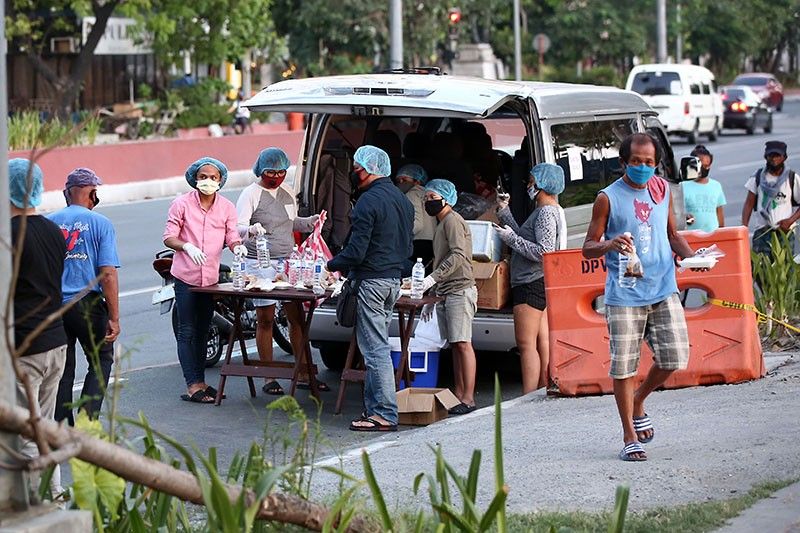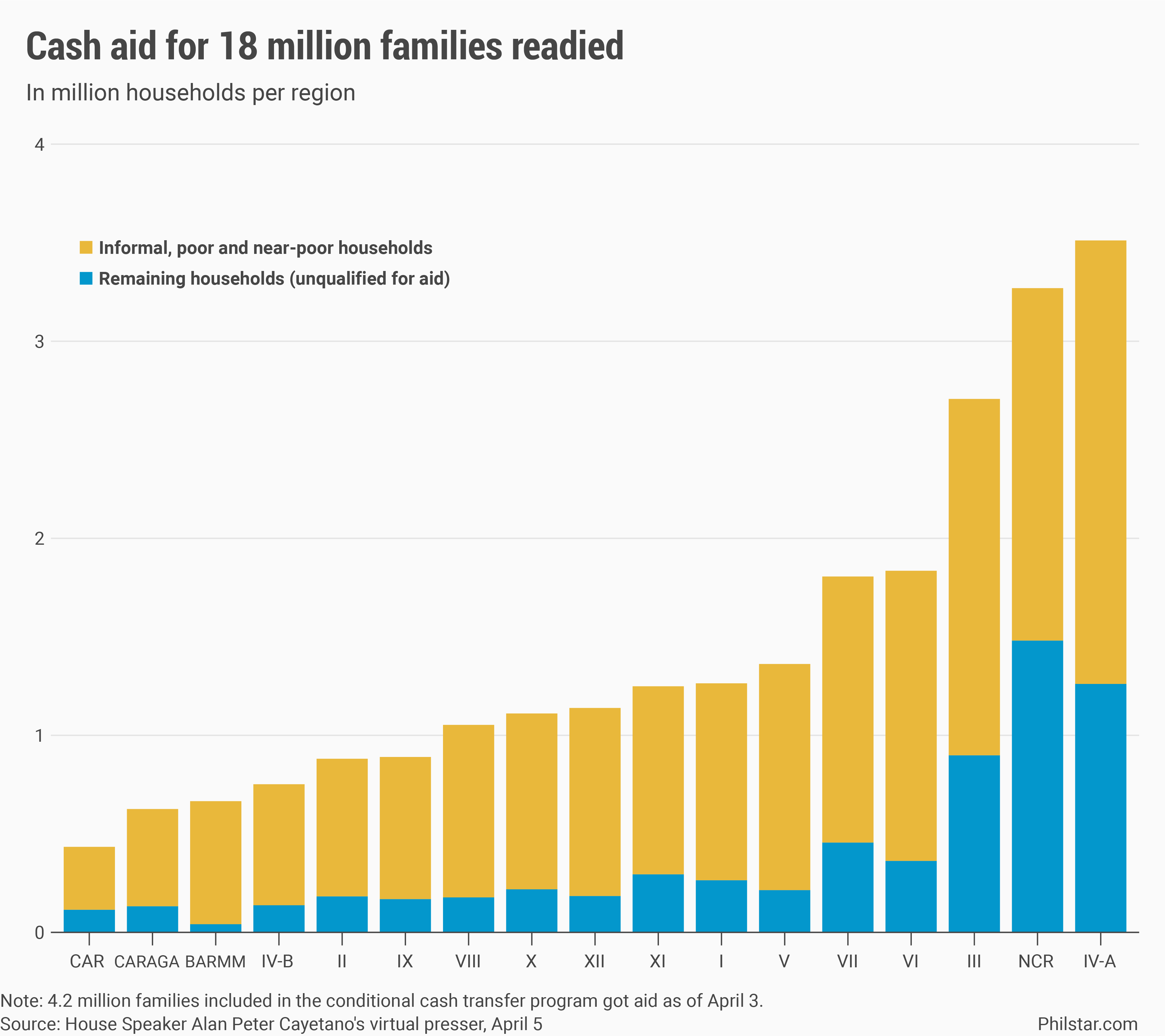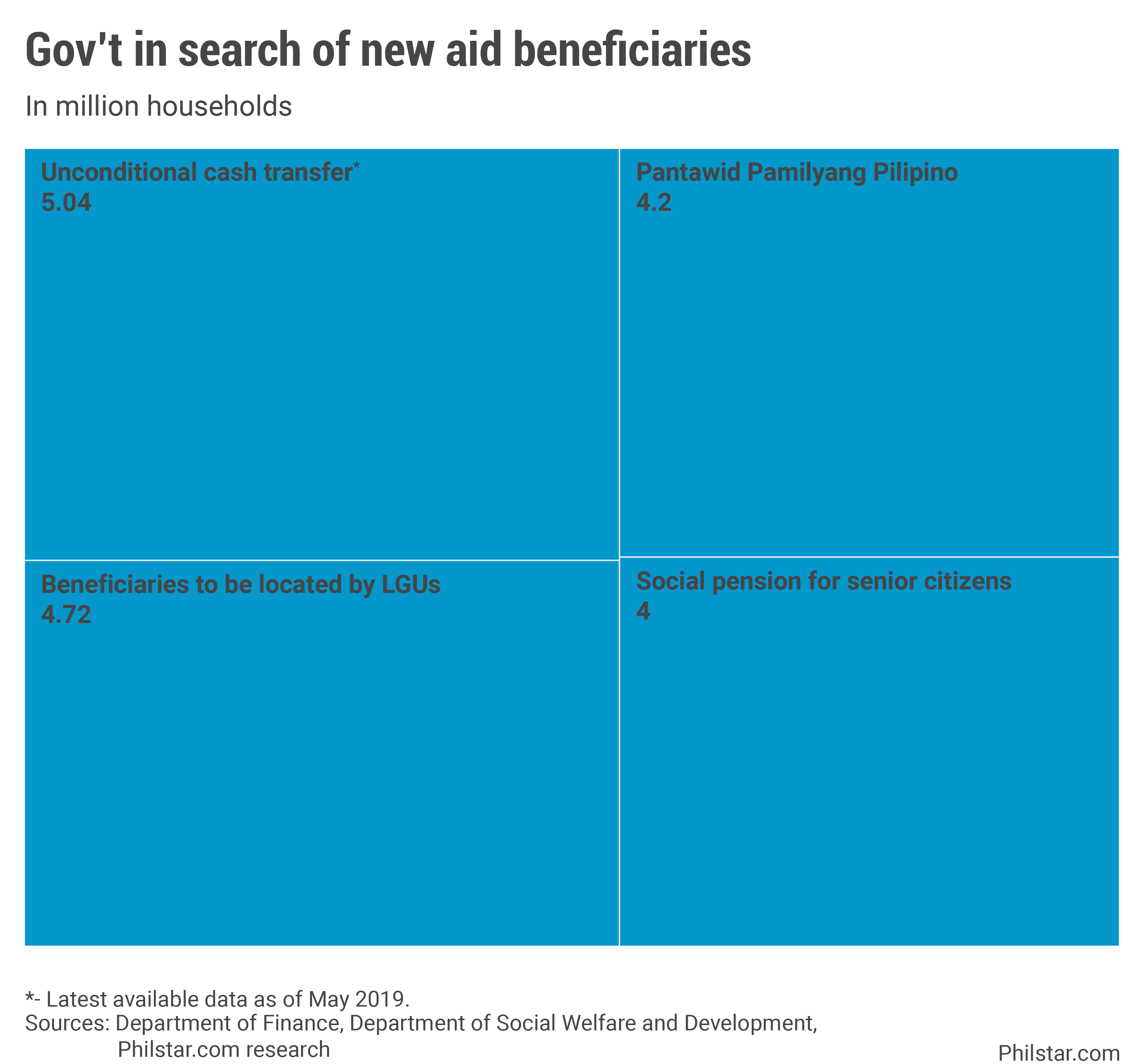Aid woes reveal Philippines failed to learn its lessons

MANILA, Philippines — Aid has been slow to trickle down to people affected by the coronavirus outbreak in the Philippines, a crucial gap in the disaster contingency program that has remained unresolved despite the country’s painful experience in dealing with calamities.
The problems appear slowly getting resolved, albeit with damage already done for a number of infected healthcare professionals, some of whom have died, without personal protective equipment (PPEs). The next battleground would be assisting poor families who lost livelihood and jobs due to the epidemic and the Luzon lockdown intended to fix it.
“We do not want any more delays so if there are some cumbersome rules and red tape in the distribution of aid, so we try to do away with it as much as possible,” Cabinet Secretary Karlo Nograles said in a virtual presser on Monday.
On the ground, developments have been mixed. At the Office of Civil Defense (OCD), which President Duterte tasked to consolidate donations, the release of goods to agencies and hospitals has moved fast since the arrival of first batch of PPEs from China procured through government-to-government negotiation last week.
The scenario, however, is bleaker at the Department of Social Welfare and Development (DSWD), which oversees the cash aid program to 18 million poor families. The lack of data is hampering the distribution of P200-billion social amelioration program nationwide, going into the third week of the Luzon community quarantine.
Low PPE supply, faster release
At the OCD, administrator Ricardo Jalad said more of the one million PPEs will arrive this week and will be “immediately distributed to designated hospitals.” If the first batch of 15,000 PPEs went to Metro Manila, some of the succeeding batches will be distributed to Northern Luzon, Visayas and Mindanao.
Since the outbreak is expected to last beyond April, Jalad said the target is for hospitals to have “at least one-month supply of PPEs each,” while OCD keeps a buffer worth two months in its warehouses.
“You can still donate directly to other agencies. In fact, we are encouraging people to do that so that distribution is faster. Agencies would just need to report to us for record-keeping,” he explained.
It was a long time coming before PPEs have finally started coming in, delays which were partly a result of belated procurement and global supply constraints. Hospitals have been complaining of PPE shortages blamed for the death of 14 doctors at the frontlines of the coronavirus disease-2019 (COVID-19) fight.
Alaine Figueras, program director of non-government Shared Aid Fund for Emergency Response, explained that aid coordination is crucial in making sure that donations are effective in alleviating the situation of people in need during disasters.
“The problem is often aid is fragmented across different agencies. They need to be coordinated so once aid flows in, you can identify who really needs the assistance to begin with,” Figueras said in a phone interview.
“Sometimes, we end up helping those people only found in mainstream media when in reality, there are way lot of communities affected by disasters that end up underserved,” she added.
Jalad said a report on all aid coursed through OCD will be made public, a move he said is "part of our lessons from typhoon Yolanda."
At the time, questions on the accounting of reconstruction funds became a political tool against the former Aquino administration, resulting in the defeat of former Interior Secretary Manuel Roxas II on the 2016 presidential elections. In 2019, the Commission on Audit said including local donations, a total of P46.67 million in Yolanda funds remained unused despite Duterte's promises to finish the rehabilitation during his term.
On the flip side, aid transparency also moved ahead at the time of Yolanda. The Foreign Aid Transparency Hub, a government-initiated website that tracked foreign aid donations, was established and recorded around P73 billion in foreign donations for the rehabiltation of the typhoon-ravaged area.
Slow cash aid disbursement
While aid transparency helps eradicate corruption, which Duterte is trying to avoid in the COVID-19 response, keeping a tight watch on funding can have the inadvertent effect of slowing disbursements. Balancing the need for more transparency while speeding up assistance is something DSWD, the implementor the cash aid program, has yet to master.
As part of outbreak assistance, data showed the government targets to give cash subsidy to 17.96 million “poor and near-poor families,” representing about 73% of 24.55 million households in the country. But so far, only about 4.2 million have been aided, beneficiaries easily identified through the existing list of conditional cash transfer (CCT) recipients, while the rest are either scheduled for next batches or still needed to be located through the help of local governments.

Considering the present DSWD databases, people yet to receive aid include 5.04 million household beneficiaries of unconditional cash transfer under the tax reform law, and around four million senior citizens as social pension beneficiaries.That leaves the need to locate nearly five million others that can go as tedious as a house-to-house verification process.
As if incomplete data is not enough, layers of recipient validation are also slowing down the process. On Sunday evening, House Speaker Alan Peter Cayetano, who is receiving reports from DSWD, said in a virtual briefing verifications can last by up to 10 days before aid is finally disbursed. DSWD spokesperson Irene Dumlao was quick to defend the procedure. “Validation is important to avoid duplication," she said in a phone interview.
Validation is also critical for auditing purposes. The budget department said all aid will be subject to typical government audit, even as strigent procurement rules had been eased to speed up fund disbursement.

“There is no easy implementation here. They are covering a lot of families,” said Jose Ramon Albert, senior research fellow at the Philippine Institute for Development Studies, a state-funded think tank.
But the problem does not stop there. At the onset, DSWD is also using an outdated 2015 census to target its existing household beneficiaries, making figures at risk of under- or overestimation. Some local governments in Metro Manila, including Malabon, Valenzuela and capital Manila, have already complained that funds allotted them by DSWD were not sufficient for their constituents in need.
“Distribution is also a problem. The government should have encouraged people to get money through electronic channels. That would cut the cost and the logistical needs in distributing aid,” Albert said in a phone interview.
“When funds are not universal, many people will get angry,” he said.
- Latest
- Trending




























